BEIJING, May 12 – The ceasefire between India and Pakistan appears to be holding on Sunday despite mutual accusations of violations, as media reported signs including airspace reopening in Pakistan and the resumption of businesses in border areas, while both sides reiterated their commitment to the truce.
India and Pakistan on Saturday agreed to immediately cease all hostilities across land, air and sea, following four days of escalated drone, missile strikes and shelling. Though explosions were heard in some places after the ceasefire was announced, India and Pakistan have accused each other of violating the ceasefire agreement, both countries have reiterated their commitment to the agreement, CNN reported.
Pakistan reopened its airspace for all types of flights as tensions eased with India following the ceasefire agreement, but a return to the normal flight schedule is likely to take some time, according to Pakistani media Dawn.
According to Al Jazeera, a day after the ceasefire announcement, calm returned to the streets of Srinagar, the main city in Indian-administered Kashmir. Shops started to open and people are resuming their routines, but many are still wary, the report said.
UN General Assembly President Philemon Yang welcomed the ceasefire in a Sunday X post. “It is a meaningful step toward de-escalation reflecting the commitment of both nations to regional peace and stability,” Yang wrote.
He urged continued diplomatic efforts and dialogue to resolve differences and achieve lasting peace and stability in line with the UN Charter and international law.
Countries around the world, including Bangladesh, Qatar, Turkey and the UK, have also welcomed the ceasefire, which was brokered by more than 30 countries, according to Al Jazeera.
In a late night address on Saturday, Pakistani Prime Minister Shehbaz Sharif welcomed the ceasefire and thanked countries like the US, China and Saudi Arabia for backing peace efforts.
In his address, Sharif thanked US for “playing a sincere and constructive role.” US President Donald Trump took credit for the ceasefire, writing in a Saturday post on Truth Social that “I am proud that the USA was able to help you arrive at this historic and heroic decision.”
Sharif, in the address, also gave special mention to China for its support, Indian media Times Now reported.
During the India-Pakistan conflict, China has actively communicated with both sides, urging a political settlement through peaceful means, Xie Chao, an associate professor from the Institute of International Studies, Fudan University, told the Global Times on Sunday.
On Saturday, Member of the Political Bureau of the Communist Party of China Central Committee and Foreign Minister Wang Yi had phone calls with Pakistani and Indian senior officials.
In the call with Pakistan’s deputy prime minister and foreign minister Mohammad Ishaq Dar, Wang said that once a ceasefire is reached, it must be jointly upheld to prevent the recurrence of conflicts, adding that a lasting ceasefire serves the interests of both sides, contributes to regional peace and stability, and meets the common expectations of the international community.
When talking to India’s National Security Advisor Ajit Doval over phone, Wang expressed his hope that India and Pakistan will remain calm and restrained, properly handle differences through dialogue and consultation, and avoid escalating the situation.
As a responsible major country, China advocates for all parties to uphold their responsibilities, foster dialogue, and pursue peaceful resolutions, Liu Zongyi, Director of the Center for South Asia Studies at the Shanghai Institutes for International Studies, said in an interview with the Global Times.
What is ahead?
After the situation appears to have de-escalated, the question becomes whether the ceasefire can last and how can the two sides settle the issue.
The Foreign Office of Pakistan on Sunday said in a post on X that “Pakistan remains committed to faithful implementation of ceasefire between Pakistan and India.”
Also on Sunday, Indian Prime Minister Narendra Modi held a high-level meeting with defense minister Rajnath Singh, external affairs minister Subrahmanyam Jaishankar and tri-services chiefs at his residence in New Delhi, ANI reported. Modi is also being questioned by the opposition, Al Jazeera said.
Though Pakistan maintained that it agreed on a ceasefire with India, New Delhi called it an understanding, Economic Times reported. Amit Malviya, ruling Bharatiya Janata Party’s Information and Technology department chief, on Sunday highlighted that the halt in fighting is an “UNDERSTANDING” and not an “AGREEMENT.”
In its first statement since Operation Sindoor began on Wednesday, the Indian Air Force said Sunday that “the Operations are still ongoing… and a detailed briefing will be conducted in due course,” according to Indian media First Post.
Xie said that at the moment, skirmishes appear to still be occurring in border areas, and it is important for both sides to continue to demonstrate strategic restraint and return to the path of resolving their differences through negotiations.
Despite the ceasefire, sources have told Reuters that the Indus Water Treaty – a key water-sharing pact between India and Pakistan – remains suspended.
India and Pakistan, home to an estimated combined population of more than 1.6 billion, are heavily dependent on rivers flowing from the Himalayas for their water needs, according to Al Jazeera.
Pakistan Defense Minister Khawaja Asif has said that Kashmir, the Indus Waters Treaty and terrorism remain major issues with India and could be discussed in any future dialogue with the neighboring country, the Economic Times reported.
Neither India nor Pakistan wants or can afford an all-out war. After the ceasefire, diplomatic negotiation is the only solution to issues between the two sides, Liu Zongyi said.











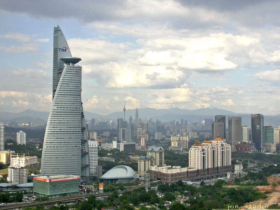
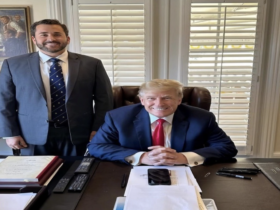


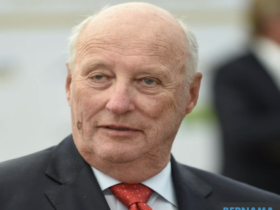

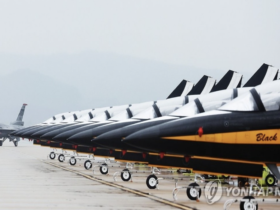
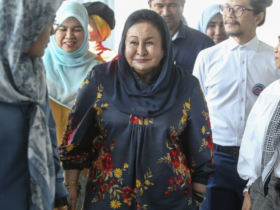
Leave a Reply